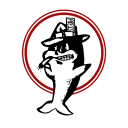You would certainly be correct in calling Eugene Lewis (BScEE’64) an engineer, a professor and an entrepreneur. But beyond all of those things, the title that seems to truly fit him is humanitarian.
Dr. Lewis, who taught at UNB for 37 years and Chaired the Electrical Engineering Department for 22 of them between 1980 and 2006, spent many years guiding students to think critically and problem-solve. All the while, he was applying those skills himself to solve pressing problems around the globe.
He came from humble roots in “the slums of Saint John’s south end”, where he developed a strong work ethic in order to help his family make ends meet. While in grade school he held two newspaper routes, which took three hours a day to deliver, then worked for a wholesale shop for another two hours after supper, and then took on extra work by going to the print shop and packing newspapers after midnight for another four hours. But in grade 12, a caring principal told him to “give up the newspapers” and get more social activities on his resume in advance of applying for a Beaverbrook Scholarship. He did as he was told and became editor of the school paper and joined a fellowship club. He put in his application and indeed became a Beaverbrook Scholar and was on his way to UNB.
While in the undergraduate engineering program, Jim Dineen, who was Dean at the time, took Eugene, who graduated first in his class, under his wing and helped him get into the University of British Columbia for graduate school. But instead of obtaining his master’s degree, he went straight through to graduate with a PhD in record time – in less than four years. It’s a feat he credits to being a “workaholic”.
After graduating, he turned down a prestigious job at Bell Telephone Laboratories for a Fellowship in England working with a researcher who was interested in his thesis from UBC and its applicability to optical fibres. Soon after, however, one of his professors from UNB, Robert Kavanaugh, who was on sabbatical in England at the time, came to see him with a job offer from Jim Dineen in hand. He returned to UNB in 1969 as a faculty member in the Electrical Engineering department.
“Key people in your life can do things that make a huge difference,” Eugene says. “I’ve been fortunate to have more than a few of those in my lifetime.”
Engineering & Entrepreneurship
During his time at UNB, Dr. Lewis was instrumental in the development of ten courses with their respective associated laboratories in the areas of electromagnetics, transmission lines, microwaves and fibre optics. He led the implementation of two new programs in Computer and Software Engineering. He conducted research on waveguides and industrial applications of microwave heating. He led the establishment of and became Director of CADMI Microelectronics Inc., a centre that attracted millions of dollars in capital and operating grants for projects and designs that led to the start-up or advancement of numerous small firms in New Brunswick through the transfer of microelectronics technology. He also developed innovative programs for student recruitment – including the “lab in a box” program which delivered technical laboratories to high schools each year and a popular technology impact series delivered to 30 schools.
In 1973, UNB English professor Murray Kinloch approached Eugene to help him with a project he was working on with Brian Davies of the International Fund for Animal Welfare (IFAW). They needed to put an antenna on the Magdalen Islands so the group could track seals on the ice. Eugene was able to engineer a communications system that was 750-ft above sea level and sent signals to the group in real time. As a result, he became the IFAW’s air traffic controller in what became the “seal wars” of the 1980s and ‘90s.
This marked the beginning of a career full of humanitarian efforts for Eugene, but it also sparked a very successful entrepreneurial effort as well. In 1983 he launched a company offering the first large scale harp seal tours to the Gulf of St. Lawrence and wildlife tours to the Arctic. He used his communications technology to be able to track the seals and ensure lots of sighting for tourists; the company, therefore, became very successful (even though he worked on it only on March break and summer vacation), and ten years later harp seal tourism became a one million dollar industry requiring up to 14 helicopters.
He began offering tours out of the Northwest Territories’ Pond Inlet, a mostly Inuit community that sits at the northern tip of Baffin Island near the entrance to the Northwest Passage - the migration route for more than 20,000 narwhals in June. To accommodate the steep demand he was getting, he trained people in the Inuit communities of the Arctic to offer the tours, the result of which helped transform their economy.
Alas, as climate change took its toll the ice melt meant that the seal and northern tours were no longer possible due to lack of ice. But that just meant that it was time for Eugene to move on to his next adventure: this time, it was in Bhutan.
The Bhutan Light Project
UNB already had a relationship with the small, remote country nestled in the Himalayas: they sent Bhutanese students to be trained as teachers in UNB’s Education Faculty. A very primitive region that’s not easy to reach, Bhutan had limited and unreliable electricity and was therefore developing hydropower plants to take advantage of their abundant river system. They had a problem, however: they had few engineers and an introductory engineering program which required upgrading. They asked UNB for help, and Professor Phil Parker and others including Eugene traversed the mountains to develop university degree programs in civil and electrical engineering.
While staying at the hotel in Bhutan, the power went out and Eugene began using a personal LED hand-cranked light he had brought with him. The hotel manager, who previously had been an employee of the Bhutan Royal Family, was so impressed that he took Eugene to the Royal Palace to discuss getting the devices for the 45,000 homes in the country without electricity. He met with the King’s sister, who was also fascinated with the light, and they hatched a plan. She wrote to UNB President John McLaughlin for help, and Eugene worked with him to create the Bhutan Light Project in which UNB electrical engineering students participated. They raised money from UNB alumni and partners and sent LED lights to the Royal Family who walked them into the mountains to deliver them to 1000 rural households.
Taking Humanitarianism to the Next Level
The next humanitarian project Eugene took on stole his heart. After the 2010 earthquake that devastated Haiti, he jumped into coordinating a group from Fredericton who took supplies to the Caribbean country to build an orphanage. What was to be a two-week trip turned into two months of using empty shipping containers to build the Fredericton Hope Children’s Village in the town of Jacmel that had been devastated by the earthquake.
During that time he met many “kind and wonderful people”, including a poor pastor who had taken into his own meager home many children who had been orphaned by the earthquake. It drove Eugene to continue helping, and over his time there he participated in other projects, including installing a solar panel system to pump water up a mountain to a small village, constructing two schools and renovating two existing orphanages.
When he returned home he got involved with the Friends of Mark Gallagher organization that was raising money to build a trade school in honour of Sgt. Gallagher, a New Brunswick RCMP officer who died in the 2010 earthquake in Haiti while on a nine-month United Nations mission to train police officers there. Eugene became the technical coordinator of the project and was part of the team that oversaw the building and equipping of the school in a suburb of Port-au-Prince.
Along the way, he made many dear friends and fell in love with the children of Haiti. He recounts a time when he convinced the pastor at the orphanage that they should take the kids to the coast – an over two-hour drive away- so that the children could swim in the ocean for the first time. “It was incredibly rewarding to see the kids so happy.”
Strange Adventures
Dr. Lewis is chock-full of tales from his years of traveling the world that seem almost too incredible to be true. And yet, he has a binder full of photos, awards and letters of gratitude to confirm them.
He proudly shows off the Coronation Medal and Wedding Medal of Bhutan King Jingme Wangchuk that were sent to him by the Royal Family, and he recounts an incredible story of being on the same flight as the Queen Mother of Bhutan who invited him to join the family for dinner at the palace, which turned out to be a formal dinner with 70 government officials to which Eugene was introduced publicly and thanked profusely.
He tells of the wildlife tours he operated in India, Bhutan (to spot the elusive snow leopard) and Africa. He’s camped in the Amazon for three weeks with a guide but with no tent, no food and no sleeping bag – only a mosquito net. He was given a free trip to the Galapagos Islands because of his work with seals.
He laughs over stories from when he was in England during his post-doctoral year and he and a fellow researcher took a road trip through all of the Eastern European countries. They were thrown out of Poland during the 1968 Poland Political Crisis and caught in the Russian invasion of Czechoslovakia, narrowly escaping imprisonment for being in the wrong place at the wrong time.
He has some scary tales as well: during one of his hikes to Machu Picchu he saved another traveler from being killed; while in Haiti he was significantly involved in rescuing the niece of one of the orphanage nuns from a kidnapping.
Eugene’s latest adventure is deep in the rainforests of Guatemala, where he is participating in four projects installing water filters and low-emission indoor cooking stoves for the indigenous Mayan people. Air pollution from traditional open-fire indoor cooking stoves has recently gained headlines as one of the leading causes of disease and death among the poorest and most vulnerable populations around the globe. While giving a presentation at the Woodstock Rotary Club, Eugene overheard members talking about funding a project in Guatemala to combat this problem. He immediately got involved, and has since been to the Central American country four times and visited 120 villages to construct solutions.
Did I mention that Dr. Lewis is now a septuagenarian?
Eugene fully admits that he’s “a weird guy” and “a crazy risk-taker” with a backpack full of strange adventures. “But I love helping people and I don’t mess around. I deliver.” He says the key to a great life is figuring out how to help people. “I’ve always looked for ways to help people in need, and it’s been very fulfilling.”





